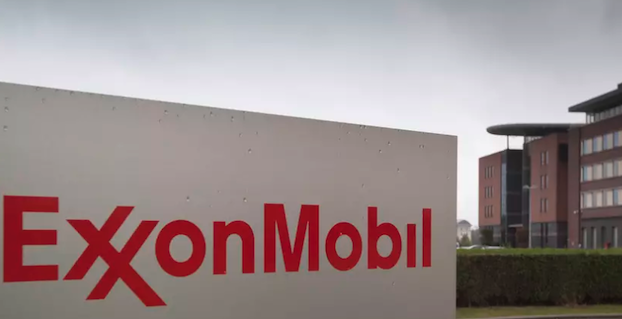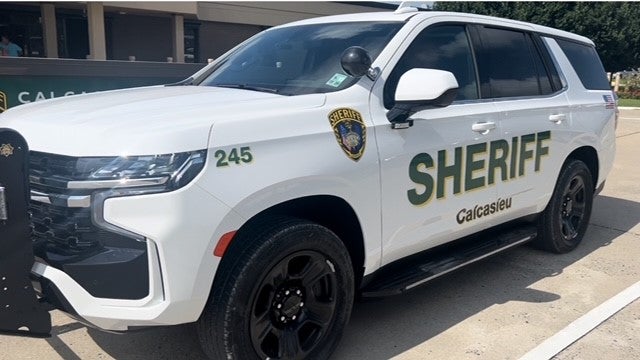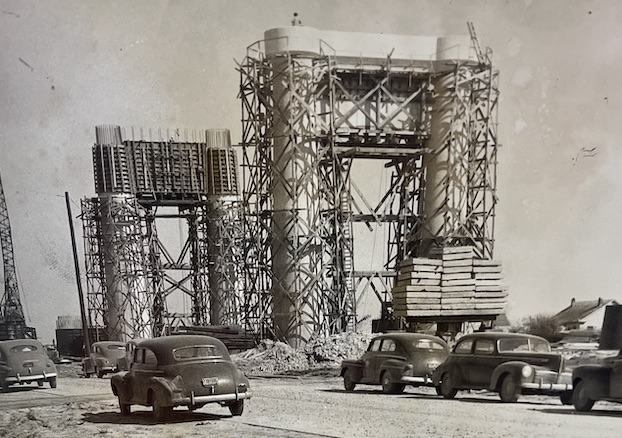ExxonMobil sues Allen Police Jury over C02 permit ordinance
Published 1:15 pm Monday, July 7, 2025

- ExxonMobil filed a 22-page lawsuit on July 1 in the U.S. District Court Western District in Lake Charles against the Allen Parish Police Jury and Sheriff Doug Hebert III. (Associated Press Archives)
ExxonMobil Low Carbon Solutions Onshore Storage is suing Allen Parish officials over local efforts to require a parish permit for carbon capture sequestration and injection wells.
ExxonMobil filed a 22-page lawsuit on July 1 in the U.S. District Court Western District in Lake Charles against the Allen Parish Police Jury and Sheriff Doug Hebert III. The lawsuit challenges the legality and enforceability of a local ordinance requiring a parish permit for carbon capture sequestration and injection well projects, arguing it is inconsistent with state law and delays state-permitted activities.
ExxonMobil currently has state approval for two Class V stratigraphic test wells in the parish. If the test wells are successful, the company plans to capture industrial CO2, transport it via pipeline, and store it underground. However, police jurors and local residents are concerned these projects threaten the Chicot Aquifer, a vital drinking water source.
The police jury adopted the injection well ordinance (Ordinance No. 6656) in May, aiming to establish local oversight for carbon capture sequestration and injection wells, a matter typically under state jurisdiction. ExxonMobil claims it repeatedly requested but never received a final version of the ordinance from the police jury.
Roland Hollins, a member of the Allen Parish Police Jury and chairman of the Louisiana CO2 Alliance, told the American Press on Monday that the police jury requested an expedited Attorney General opinion on its authority to regulate the wells but has not yet received a response. Police jurors are expected to call for a public hearing next month to rescind the ordinance.
The lawsuit seeks to declare the ordinance invalid and unenforceable, asserting that it exceeds state laws that the company has already met or will meet. It also requests declaratory and injunctive relief to prevent the enforcement of what it deems an unlawful ordinance.
ExxonMobil argues the additional parish permit is both burdensome and redundant, as the state-issued Louisiana Department of Environmental and Natural Resources permit fulfills all necessary requirements.
Furthermore, the lawsuit contends that the ordinance jeopardizes current and future carbon capture projects by granting the parish “complete discretion over whether a permit ever issues and is under no timeline to do so.”
According to the lawsuit, state regulators have already approved the construction of the first exploratory Class V test wells at both the Mockingbird and Hummingbird sites. These sites are located east of Oberlin and extend to the Reeves and Elton area. Regulators found that ExxonMobil “met the interim requirements for permitting,” allowing drilling under strict environmental safeguards. The construction permits require competition by June 23, 2026, a deadline ExxonMobil states it risks missing.
ExxonMobil reports having already spent over $75,000 on route surveys, engineering work, and procurement for its pipeline project in Allen Parish. The company indicates it cannot recoup these costs unless the ordinance is nullified and stands to forfeit an additional $75,000 if the project cannot proceed.
If the test wells are successful, the company intends to seek a Class VI permit from the state for deep underground carbon dioxide injection, a prospect that continues to be a point of contention for police jurors and residents concerned about the Chicot Aquifer.
Hollins, who has been a vocal opponent of these projects, could not comment on the ongoing litigation but affirmed that local residents will continue to oppose carbon capture projects, despite recent legislation that facilitates these projects in Louisiana without local consent.





